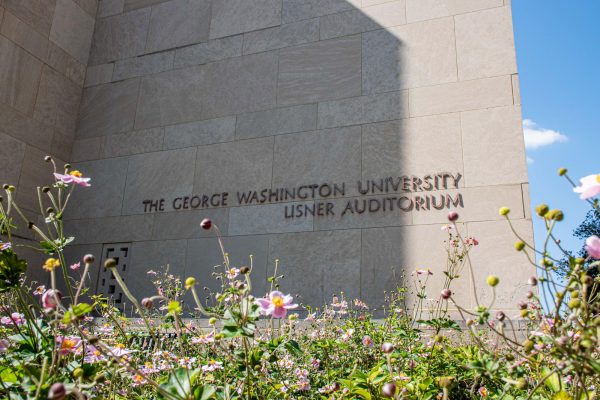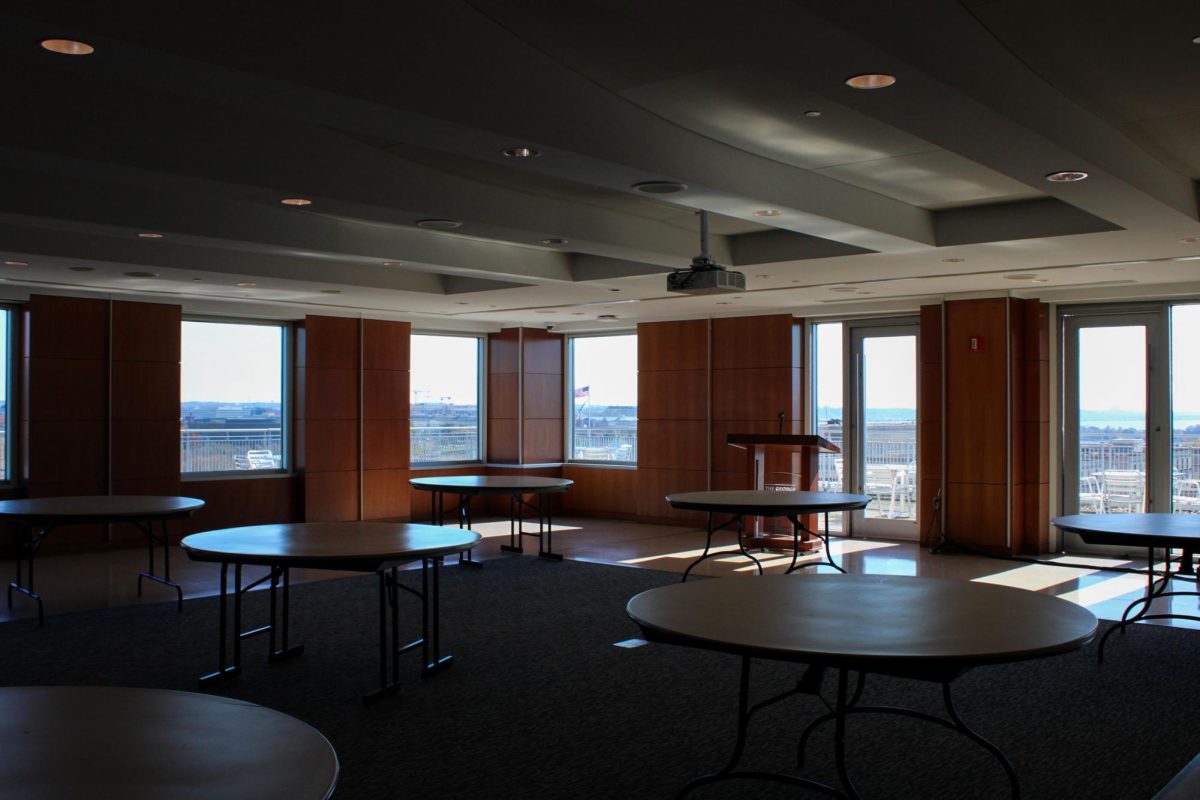Student organizations said rising venue prices at Lisner Auditorium and limited meeting spaces on campus have made it difficult to book spaces necessary for programming.
Student organization leaders said the price of larger venues on campus like Lisner Auditorium and the City View and State rooms in the Elliott School of International Affairs impedes their groups from putting on campus events, while the elimination of meeting spaces in the District House basement during the building’s summer revamp keeps them from securing consistent meeting spaces. Student organizations said the lack of availability of campus meeting and rehearsal venues has hindered their ability to host meetings and events that attract a large audience.
Krissy Cralle, a third-year law student and the director of GW Law Revue — a student group that showcases law students’ artistic talents — said they estimate renting Lisner for their annual spring show this year will cost them more than $29,000, including costs for their show date and rehearsal dates. The price for Lisner rentals rose by 5 percent compared to last academic year due to changes in labor fees, according to documents obtained by The Hatchet.
Cralle said after requesting money from the Student Bar Association and the University-Wide Programming Fund — an effort by the Student Association and the Division for Student Affairs to fund campus-wide events for student organizations — Law Revue is still $7,000 short of being able to afford to rent Lisner for its show this spring. She said Lisner — which costs more than $12,000 to rent for one eight-hour day — is the only campus venue large enough to hold the 400 people they expect to attend.
“Our ideal is to be in Lisner and to be able to put on the show that we have typically put on and without the funding, that’s not possible,” Cralle said.

Cralle said the University has a responsibility to support student organizations by making rooms accessible in price and available.
University spokesperson Julia Metijan said student organizations are not charged the “standard rental fee,” but officials may factor in additional fees for temporary staff and equipment to the final price to use certain venues.
Metijan declined to comment on the price to rent the Lisner and Jack Morton auditoriums and the State and City View rooms in the Elliott building, as well as how the prices have changed since last year.
“The Division for Student Affairs and Events teams are committed to continued support for all student organizations, and will continue to prioritize accommodating requests needed for our available spaces,” Metijan said in an email.
Cralle said officials should provide a discount for student organizations to be able to rent out these large spaces.
“Maybe it’s fair to charge somebody who is not affiliated with the University that for an event space in D.C., but as students who are paying to be at this University, feels like we shouldn’t have to struggle this hard to put on a show that has existed here for almost 50 years at this point,” Cralle said.
Margaret Korinek, a senior and the director of GW Comedy Nights, said renting space on campus is one of the “most frustrating” parts of her role. She said the group would like to book Lisner for their shows — which usually attract about 150 people — but cannot afford the space. She said renting out Lisner comes with a lot of “unnecessary” fees like paying for GW Police Department officers to be present and people to operate lighting, which students can “easily” do themselves.
She said the group instead rents out Lisner Downstage for $80 from the Student Theatre Council on campus but many attendees have to sit on the floor and they usually have to turn people away due to a lack of space.
“It’s frustrating when there’s so many other auditoriums on campus that, without SA funding, I know we can’t afford, but also we don’t have spaces that are being provided to us and the [University Student Center] won’t successfully fit everyone that wants to attend,” Korinek said.
She said she and other student organizations have struggled to use the student center’s online portal to book spaces because the portal showed meeting spaces were available when they weren’t.
“Directing this org and speaking to other comedy orgs on campus and just org directors in general, there’s always the period where you go into the USC portal to book spaces and people get really frustrated because it doesn’t work,” Korinek said.
Jade Balansag, a junior and the president of the Philippine Culture Society, said there was a noticeable difference between this year and last year in the number of available meeting spaces, especially within District House because the newly renovated basement — which now includes District House Market — got rid of former meeting rooms. She said the University should compensate for their elimination of meeting spaces to make room for eating and lounge space by creating more spaces in other areas on campus.
There are 15 meeting spaces, four major spaces and one presentation space available for students to book in the student center, three spaces — one of which is a dance studio — available in District House and one dance studio in Mitchell Hall, according to the DSA’s website.
“It would have been nice to have some sort of compensation for that like rooms elsewhere and even just a warning,” Balansag said.
She said having access to a large space is crucial for the group’s annual culture show Tandaan, which features dances with props, for both rehearsals and making the event itself possible. She said the group tries to avoid booking spaces that cost money but the free, larger spaces on campus are competitive to reserve.
“I booked them kind of at the same time that I did last year and I noticed that there was way less availability this year than there was last year,” Balansag said. “And it was just really hard to find rooms that were big enough, rooms that had the right layout, things like that.”
Fatima Kane, a senior and the president of GW XOLA, said the Afro-Caribbean dance team has been left without a room to practice weekly, which leads to them having to cancel practices and sets them behind in preparing their dances for upcoming competitions. She said when members of her organization aren’t able to book a rehearsal space or other students are occupying a space that appeared available online, the group has to wander around in hopes of finding an open room.
“It’s really stressful,” she said. “I think that it also limits what we can do, especially for this team.”
She said she wishes there was system to ensure people use the rooms they’ve booked. She said officials should create more spaces to more equally balance spaces available to the number of student organizations who need to use them.
“I feel like I haven’t had one week where it’s just been smooth sailing in terms of booking,” Kane said.
Jennifer Igbonoba contributed reporting.





